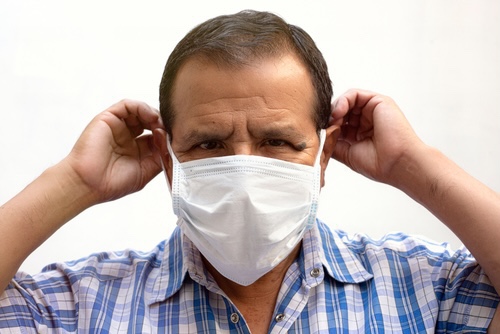⏰ 3 Minute Read
By Francisco Romero
Phoenix, Arizona.- There is still a long way to truly know the medical, economical and social effects the newly coronavirus (Covid-19) will leave behind and it’s ramifications towards life in the future.
One thing we know is that the current situation has taken the world by storm with 2,832,441 cases, 197,342 deaths and 807,037 patients who have recovered (as of April 24)
The United States being the country with the most cases with 925,232 cases, 52,193 deaths and 110,432 patients recovered (as of April 24).
Covid-19 does not discriminate, but circumstances in the Latino community of the United States has made Latinos and minorities very vulnerable.
Citing an analysis from “The Guardians” website, it states that, “Latinos are being infected and hospitalized three times the rate of white Americans”.
The following is data gather from “The Guardian’s” analysis:
In Utah, Latinos are being infected and hospitalized at three times the rate of white people.
Whereas Latinos make up 14% of the state’s population, 29% of the patients who tested positive for Covid-19 in the state identified as Latino.
In Oregon, Latinos accounted for 22% of coronavirus cases where demographic information was available.
Latinos make up 13% of Oregon’s population.
In New Jersey, Latinos make up 19% of the population, but nearly 30% of Covid-19 patients in that state identified as Hispanic.
In Washington State, 25% of those infected are Latino while they make up only 13% of the state’s total population.
In Maricopa County as of April 24, the number of Covid-19 cases rose up to 3,123 along with 120 deaths due to the virus (according to Maricopa County COVID-19 Data).
The Centers for Disease Control and Preventions (CDC) stated the following concerning the factors that influence ethnic and racial minority groups health:
“Health differences between racial and ethnic groups are often due to economic and social conditions that are more common among some racial and ethnic minorities than whites. In public health emergencies, these conditions can also isolate people from the resources they need to prepare for and respond to outbreaks.”
Some of those factors include, living conditions (densely populated areas), over-represented in jails, prisons, and detention centers; work circumstances such as working outside the homes, lack of paid or sick leave and underlying health conditions and lower access to care.
According to the CDC the Federal Government is taking the following steps:
Collecting data to monitor and track disparities among racial and ethnic groups in the number of COVID-19 cases, complications, and deaths to share broadly and inform decisions on how to effectively address observed disparities. These data will be translated into information to improve the clinical management of patients, allocation of resources, and targeted public health information. Supporting partnerships between scientific researchers, professional organizations, community organizations, and community members to address their need for information to prevent COVID-19 in racial and ethnic minority communities.
Providing clinical guidance and guidance to support actions to slow the spread of COVID-19 in schools, workplaces and community settings, including those serving racial and ethnic minorities.
In Maricopa County you can visit the county’s web site to obtain all the information necessary related to Covid-19.
- People aged 65 or older or those who have at least one chronic health condition make up 73% of those who have been hospitalized and 98% of deaths for COVID-19.
- Supporting those at the highest risk for severe disease is essential so that they can stay home and away from others.
- The number of COVID-19 hospitalizations are leveling off. This trend indicates social distancing measures seem to be working and we need to continue our efforts to keep flattening the curve.
- Visit for more details https://www.maricopa.gov/5460/Coronavirus-Disease-2019
It is also encouraged not to be afraid to seek for information and help regardless of your immigration status.
If you need to reach Maricopa County by telephone you can dial 602-506-3011.










































